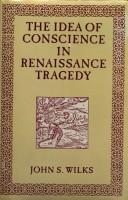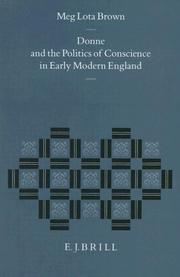| Listing 1 - 4 of 4 |
Sort by
|
Book
ISBN: 9782707321572 9782707320735 2707320730 2707321575 Year: 2009 Volume: *14 2 Publisher: Paris: Éd. de Minuit,
Abstract | Keywords | Export | Availability | Bookmark
 Loading...
Loading...Choose an application
- Reference Manager
- EndNote
- RefWorks (Direct export to RefWorks)
Nous ne pouvons connaître les autres hommes que par leurs gestes, leurs paroles et leurs actes. Depuis deux siècles, le roman ne s'en est plus satisfait, et s'est voué, avec une intensité toujours croissante, à nous montrer la conscience au grand jour. Ce qu'elle a de plus secret, et parfois pour elle-même, vient sous nos yeux dans le moindre récit. Et ce que la Bible réservait à Dieu, sonder les reins et les cours, est devenu l'attribut commun des romanciers. Quel est le sens de cette transformation radicale Comment a-t-elle ce lien ? Quels chemins a-t-elle suivis, et quelles formes a-t elle produites ? De quelle compréhension de la conscience est-elle lourde ? Ce volume se concentre sur le monologue intérieur, en se tenant au plus près de ses usages variés, conversations intimes des héros de Stendhal, fulgurations décisives de Balzac, " tempêtes sous un crâne" de Victor Hugo. L'exploration se poursuit avec Virginia Woolf (Les Vagues), William Faulkner (Lumière d'août), et Samuel Beckett (L'Innommable).
Conscience in literature. --- Conscience (Morale) dans la littérature --- Conscience in literature --- Conscience (Morale) dans la littérature --- Philosophical anthropology --- Fiction --- History and criticism --- History and criticism. --- Roman --- Histoire et critique --- Fiction - 19th century - History and criticism --- Fiction - 20th century̨ - History and criticism

ISBN: 0415044545 Year: 1990 Publisher: London New York Routledge
Abstract | Keywords | Export | Availability | Bookmark
 Loading...
Loading...Choose an application
- Reference Manager
- EndNote
- RefWorks (Direct export to RefWorks)
English literature --- Thematology --- Drama --- anno 1600-1699 --- anno 1500-1599 --- Conscience dans la litterature --- Conscience in literature --- Geweten in de literatuur --- English drama (Tragedy) --- History and criticism --- English drama --- Early modern and Elizabethan, 1500-1600 --- 17th century
Book
ISBN: 9782600012386 2600012389 Year: 2008 Volume: 447 Publisher: Paris: Droz,
Abstract | Keywords | Export | Availability | Bookmark
 Loading...
Loading...Choose an application
- Reference Manager
- EndNote
- RefWorks (Direct export to RefWorks)
French fiction --- Symbolism in literature. --- Conscience in literature. --- Symbolism (Literary movement) --- Roman français --- Symbolisme dans la littérature --- Conscience (Morale) dans la littérature --- Symbolisme (Mouvement littéraire) --- History and criticism. --- Histoire et critique --- Dujardin, Edouard, --- Gide, André, --- Gourmont, Remy de, --- Schwob, Marcel, --- Criticism and interpretation. --- de Gourmont, Remy --- 840-31 "18" --- Franse literatuur: roman--19e eeuw. Periode 1800-1899 --- 840-31 "18" Franse literatuur: roman--19e eeuw. Periode 1800-1899 --- Roman français --- Symbolisme dans la littérature --- Conscience (Morale) dans la littérature --- Symbolisme (Mouvement littéraire) --- Gide, André, --- Conscience in literature --- Symbolism in literature --- Signs and symbols in literature --- Symbolism in folk literature --- History and criticism --- Dujardin, Édouard, --- Dujardin, Edouard, - 1861-1949 --- Gide, André, - 1869-1951. --- Schwob, Marcel, - 1867-1905

ISBN: 9004101578 9004476830 9789004101579 9789004476837 Year: 1994 Volume: 61 Publisher: Leiden;Boston Brill
Abstract | Keywords | Export | Availability | Bookmark
 Loading...
Loading...Choose an application
- Reference Manager
- EndNote
- RefWorks (Direct export to RefWorks)
Donne and the Politics of Conscience in Early Modern England examines the responses of John Donne and his contemporaries to post-Reformation debate about authority and interpretation. It argues that the legal and epistemological principles, as well as the narrative practices, of casuistry provided an important resource for those caught in the welter of conflicting laws and religions. The first two chapters explore the political, historical, and theological contexts of casuistry, locating Donne in debates about the limits of reason and the relativity of law and ethics. Chapter three addresses Donne's concern with problems of moral decision and action, of knowledge and definition, in five of his prose works. Chapter four examines ways in which his verse assimilates and wittily subverts casuists' responses to epistemological and linguistic uncertainty. The study is particularly useful for literary critics, intellectual historians, and theologians.
Conscience dans la litterature --- Conscience in literature --- Geweten in de literatuur --- Conscience --- Politics and literature --- Christianity and politics --- Religious aspects --- Christianity --- History --- Donne, John --- Political and social views --- Religion --- Ethics --- 2 DONNE, JOHN --- 820 "16" DONNE, JOHN --- 321.01 "16" --- -Christianity and politics --- -Conscience --- -Conscience in literature --- Church and politics --- Politics and Christianity --- Politics and the church --- Political science --- Literature --- Literature and politics --- Guilt --- Superego --- Godsdienst. Theologie--DONNE, JOHN --- Engelse literatuur--17e eeuw. Periode 1600-1699--DONNE, JOHN --- Algemene staatsleer. Politieke filosofie. Staatsleer. Staatstheorie--17e eeuw. Periode 1600-1699 --- -History --- -Religious aspects --- -Christianity --- Political aspects --- -Donne, John --- -Political and social views --- 321.01 "16" Algemene staatsleer. Politieke filosofie. Staatsleer. Staatstheorie--17e eeuw. Periode 1600-1699 --- 820 "16" DONNE, JOHN Engelse literatuur--17e eeuw. Periode 1600-1699--DONNE, JOHN --- 2 DONNE, JOHN Godsdienst. Theologie--DONNE, JOHN --- Religious aspects&delete& --- Donne, John, --- Donn, John, --- Done, John, --- Donn, Dzhon, --- Dann, Dzhon, --- Донн, Джон, --- Ethics. --- Political and social views. --- Religion. --- England --- 16th century --- Consciousness --- Donne, John, - 1572-1631 - Political and social views. --- Politics and literature - England - History - 16th century. --- Christianity and politics - History - 16th century. --- Conscience - Religious aspects - Christianity. --- Conscience - Religious aspects - Christianity --- Politics and literature - England - History - 16th century --- Christianity and politics - History - 16th century --- Donne, John - Political and social views --- Donne, John - Religion --- Donne, John - Ethics --- Deontology --- Ethics, Primitive --- Ethology --- Moral philosophy --- Morality --- Morals --- Philosophy, Moral --- Science, Moral --- Philosophy --- Values
| Listing 1 - 4 of 4 |
Sort by
|

 Search
Search Feedback
Feedback About UniCat
About UniCat  Help
Help News
News